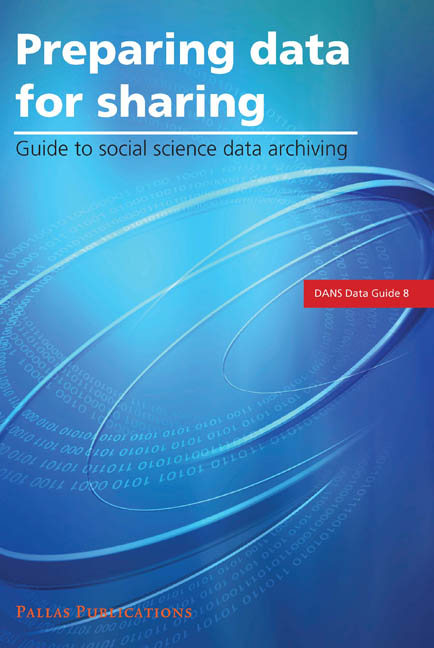Book contents
1 - Introduction
Summary
Importance of data sharing and archiving
Archives that preserve and disseminate social and behavioral data perform a critical service to the scholarly community and to society at large, ensuring that these culturally significant materials are accessible in perpetuity. The success of the archiving endeavor, however, ultimately depends on researchers’ willingness to deposit their data and documentation for others to use.
Maintaining scientific standards is an endeavor involving the entire scientific community, teachers, students, authors, reviewers, funding agencies, journal and book editors, and so on. Data sharing plays an essential role in this process, allowing scientists to test and replicate each others’ findings. ‘The replication standard holds that sufficient information exists with which to understand, evaluate, and build upon a prior work if a third party can replicate the results without any additional information from the author’ (King, 1995). There are many benefits to data sharing that go beyond replication. Fienberg (1994) argues that data sharing:
• Reinforces open scientific inquiry. When data are widely available, the self-correcting features of science work most effectively.
• Encourages diversity of analysis and opinions. Researchers having access to the same data can challenge each other's analyses and conclusions.
• Promotes new research and allows for the testing of new or alternative methods. Examples of data being used in ways that the original investigators had not envisioned are numerous.
• Improves methods of data collection and measurement through the scrutiny of others. Making data publicly available allows the scientific community to reach consensus on methods.
• Reduces costs by avoiding duplicate data collection efforts. Archiving makes known to the field what data have been collected so that additional resources are not spent to gather essentially the same information.
• Provides an important resource for training in research. Secondary data are extremely valuable to students, who then have access to high-quality data as a model for their own work.
Early archiving may enable a researcher to enhance the impact, and certainly the visibility of a project.
Best practice in archiving
In order for data to be shared and to benefit the scientific enterprise, they must be properly curated and stored. The DANS-developed Data Seal of Approval (DSA) specifies guidelines to ensure that data can be found and shared into the future.
Information
- Type
- Chapter
- Information
- Preparing Data for SharingGuide to Social Science Data Archiving, pp. 1 - 4Publisher: Amsterdam University PressPrint publication year: 2012
